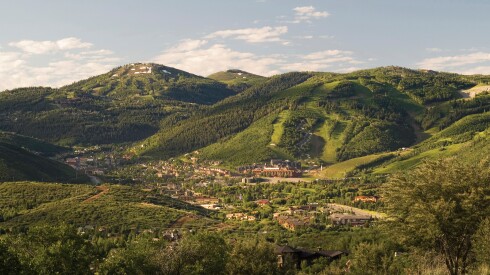As we begin our second month of all-important quarantine and social distancing, our roaming tendencies on pause for a while, we’ve been thinking back to our favorite trips in the distant past. It seems that, whether they’re from China or Costa Rica, our adventures sometimes tend to be a bit . . . awkward to recount.
A sensitive stomach in Tibet
Jeremy Saum, Executive editor
When you backpack around the world for 18 months, eating cheap, strange food as my wife and I did a while back, you’re bound to get sick sometimes. I took it as my responsibility to have intestinal distress in the most inconvenient locations.
There was the hostel on the salt flats of the Bolivian Altiplano, where I had to walk outside in the middle of the night, in the frigid cold, to reach an outhouse with stalls so small I couldn’t close the door. But, since it was the middle of the night, and no one was going to use that bathroom unless they had no choice, I had the facilities to myself. So that wasn’t embarrassing. (By the way, my wife blames the llama jerky I’d eaten in Uyuni before we set out on our jeep trip across the salt flats. I regret nothing.)
Then there was the Yangtze River cruise ship that messed up our reservation and didn’t have a room for us. They had us sleep on cots in the medical clinic. What was already the most romantic interlude of our trip became even more magical when I came down with what we referred to in college as “the heave-hos.” I’ll spare you a more graphic description, but suffice it to say, it would have been nice to have an ensuite bathroom. Luckily there was one across the hall. With a stall I fit in. And a door that locked. So that wasn’t embarrassing either.

Jeremy relaxes in the medical clinic.
Courtesy of Jeremy Saum
No, my sensitive stomach did not embarrass me until we got to Tibet. The Dalai Lama seems like a man who would need few material comforts, so it was fitting that the restroom in the Potala Palace was nothing but a large, empty room with a slot carved out of the middle of the cement floor. As I peered down through the slot, I realized the room was cantilevered over a hillside. There were what seemed like a hundred feet of open air between the slot and the ground below. That poor ground, I thought.
Having been traveling in Asia, my squatting muscles were in decent shape, and I positioned myself above the slot. Just as I started reflecting on what turns my life had taken to bring me to this point, two Japanese tourists walked in. Based on the way they had their cameras at the ready, I don’t think they realized they were entering a bathroom. They quickly realized what they’d done and backed out of the room, although in my memory, they lingered perhaps a bit longer than I considered appropriate. But I couldn’t blame them. I can only hope they cherish the moment we shared as much as I do.
“One beer, please.”
Lyndsey Matthews, Destination news editor
During the “welcome week” of my semester abroad in Prague, I went for an afternoon beer with a friend. I had yet to learn that Czechs start counting with their thumb first, so when we each held up our pointer fingers to indicate we each wanted “one more beer” to the bartender, he brought us two beers each. Confused and unable to communicate the mishap, we continued drinking (a pint of beer was only about $1, so why not?). After three beers, we figured what the heck, we’ll get another round. Which led to two more beers each. We finally figured out what had gone wrong, but we still drank them all.
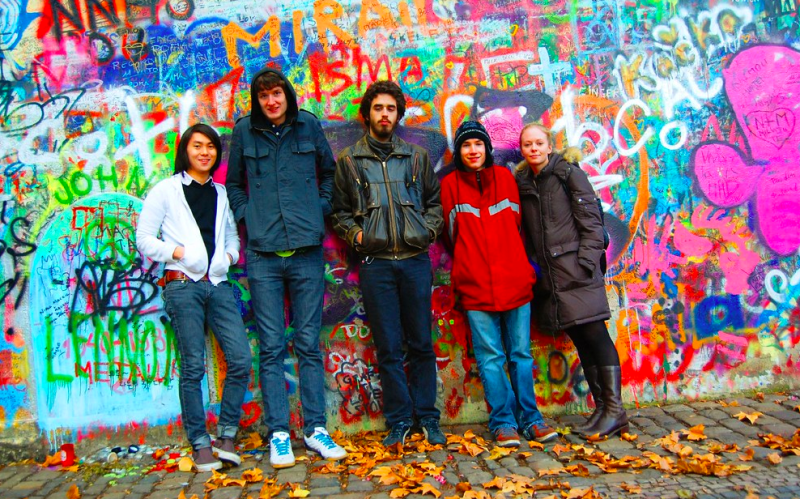
Lyndsey (far right) on the infamous beer trip.
Courtesy of Lyndsey Matthews
Five beers deep, we parted ways and I decided I needed groceries before heading back to my dorm. I wandered into Tesco, grabbing whatever touched my drunken whimsy. When I got to the yogurt aisle, I didn’t see the shopping basket someone had left in the middle of the aisle. I stepped right into it and skidded across the floor, landing flat on my face. Several concerned Czech women rushed over to ask what I assume is the phrase for, “Are you OK?” I was so embarrassed I abandoned everything in my cart and ran out of the store and back to my dorm. That was the night I learned how to say, “Jedno pivo, prosim”: “One beer, please.”
Cashflow issues in Myanmar
Michelle Baran, Travel news editor
In fall 2012, I traveled to Myanmar (formerly Burma) to explore a country that had recently transitioned from a military regime to a quasi-civilian government, effectively opening its tourist floodgates. Prior to going, I had been warned by guidebooks and my tour operator that Myanmar was still an all-cash economy and that there were no ATMs or banks where foreigners could obtain funds. I stupidly didn’t believe this warning. I had already traveled to dozens of countries and had never heard of something so insane. So I brought maybe a few hundred bucks in cash.
Not only were there no ATMs or ways to get cash, but all bills needed to be clean, crisp, and from 1997 onwards. Consequently, I ran into a humiliating cash shortage that had me sweating every time someone wanted to assist me with a gratuity-inducing service—picture me playing tug of war with a bellhop over who would carry my luggage. What was worse, though, was that the private guide with me through the entire two-week trip had to lend me money so I could make it to the end of my trip, when it should have been me paying her a hefty tip for all the time she devoted to me! But don’t worry, fellow travelers. I may be dumb sometimes, but I have morals. I managed to repay her and send her several hundred dollars extra through the tour operator who hosted me once I was back in the States.
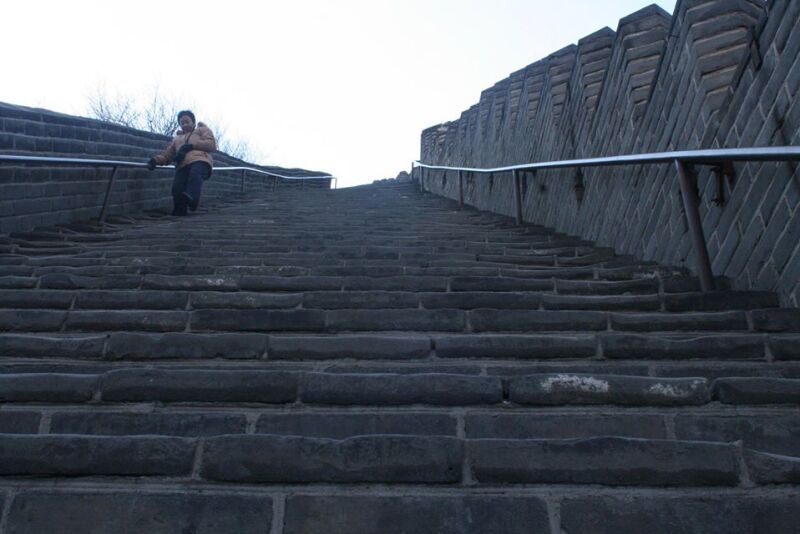
The Great Wall is steeper than you may think.
Courtesy of Tim Chester
Problematic steps in China
Tim Chester, Senior editor
A number of cringeworthy recollections have sprung to mind from locked-down corners of my brain. The time my wife and I, in a desperately uncool Renault Twizy (basically an early electric quadricycle with no windows) ran out of battery power on a hill in the Brecon Beacons during a frigid spring day. (We asked a local pub owner for some electricity to continue our journey. They said no.) Or the Great Skinny-Dipping Incident of Fuerteventura—but that one’s already been recounted at length at my wedding.
One of the most vivid, though, is my pathetic attempt to hike a stretch of the Great Wall of China. In my defense, the weather wasn’t great—a strong, icy wind sliced across the ancient stones—and the translated signs offered ominous and ambiguous warnings. “Heart cerebral disease sufferer ascend the Great Wall to please watch for,” one read. Another advised: “Attention. Heart disease, high blood pressure and disabled person throw caution to the forward slope.”
Mostly though, it was how bloody steep and scary the thing was—not the edges, the actual steps themselves. While many visitors careered up and down the forward slope with ease, some aided by walking sticks, I felt my legs go weak halfway up, and I had to cling to the arctic handrail to surf waves of panic before heading back down, shamefaced and step by slow step, on my bottom. An older Chinese woman casually descending eyed me with a mix of sympathy and mild contempt. At the bus, two women asked for a photo—a memento of the useless Brit who couldn’t navigate steps I suppose.

Tim tries to contain his relief at getting down off the Wall alive.
Courtesy of Tim Chester
An offending stench in Costa Rica
Nicole Antonio, Managing editor
My friend and I had been in Costa Rica for almost a week in 2018 when a mysterious stench in our Airbnb bathroom became untenable. The shop down the road had already closed for the night, so we had to get creative. We had citronella coils but no lighter, and there were no matches in the apartment. Fast forward to two twentysomethings hunched over an electric stove, using lavender tweezers to hold a paper towel “wick” to the hot coils and begging it to ignite. It did not.
The paper towel smoldered a bit—enough to create smoke but not enough to light the citronella—so I waved it around the bathroom as if smudging the room with sage. The smoke only worked for a few minutes. My friend finally sniffed the bath towels and took mine outside. The smell disappeared, and I was mortified—I was the offending stench source! She assured me that we’d shared several sweaty bus rides by that point, and she was certain the smell wasn’t me, it was just the towel. But I knew. I may or may not have hung my towel outside for the remainder of our trip.
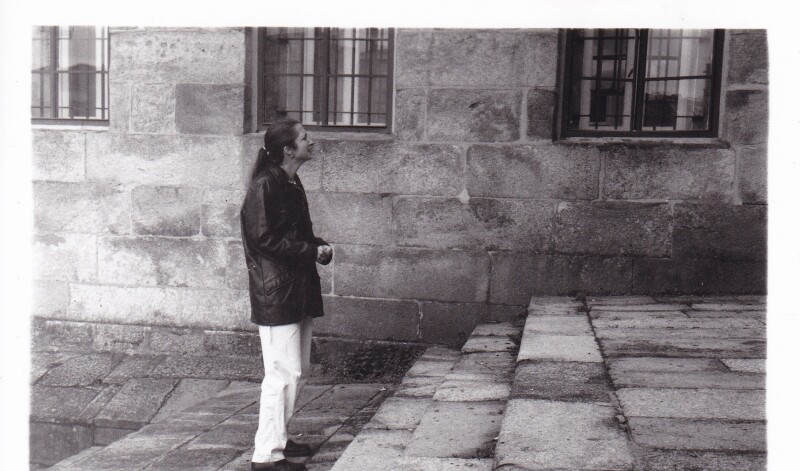
Ann contemplates driving down another pedestrian street in Spain.
Courtesy of Ann Shields
Off-roading among pedestrians in Spain
Ann Shields, Managing editor, Guides
During a three-week road trip in Galicia with my now-husband, we visited Santiago de Compostela, a university town and the final stop for most pilgrims on the Camino de Santiago. When we hit town, we decided to drive directly to the Centro to get a feel for this sacred corner of Spain. Thom was the driver and I was the navigator. Neither of us speaks Spanish or Gallego. Expertly using the paper map, I guided us through the narrow streets and along what, it became clear, was a pedestrian shopping street (oopsy!).
I instructed Thom to turn right both to avoid the metal bollard ahead and to get closer to the main town square. The road we turned onto climbed a hill and was crowded. With pedestrians. Oops again. But the number of people walking around the car meant that backing down the hill would have been a nightmare, too, so we slowly drove on.
The street—or not a street, really, because there weren’t any storefronts or streets turning off of it; it was just a wide, cobbled ramp of a street meant for walking—was clearly the main entrance to the main square. The Praza do Obradoiro is a vast, spectacular plaza, surrounded by historic buildings. And crawling with officers of the Guardia Civil, the military police.
Thom stopped the car when one of them walked over and politely tapped the window with the barrel of his very big rifle. Thom rolled down the window. The officer leaned down and asked us, in Spanish, what we thought we were doing. I answered in Italian, which seemed helpfully similar to Spanish at the time, pointing dramatically at the map which, anyone could tell, didn’t say a single thing about cars being prohibited in this square.
He patiently stood up and indicated by waving his rifle that we should drive back the way we came in. Thom turned the car around and drove back down the pedestrian street, passing some of the same people we’d passed on the way up. They had already discussed our idiocy and incompetence and were delighted to witness our retreat.
I sheepishly waved at all the glaring pilgrims, mouthing “I’m sorry!” in English. (I wish I could report that this was the only incident of accidentally driving in pedestrian-only areas during that trip. Another involved driving down some steps in the dark. Yes, we were sober. Yes, I was navigating that time, too.)
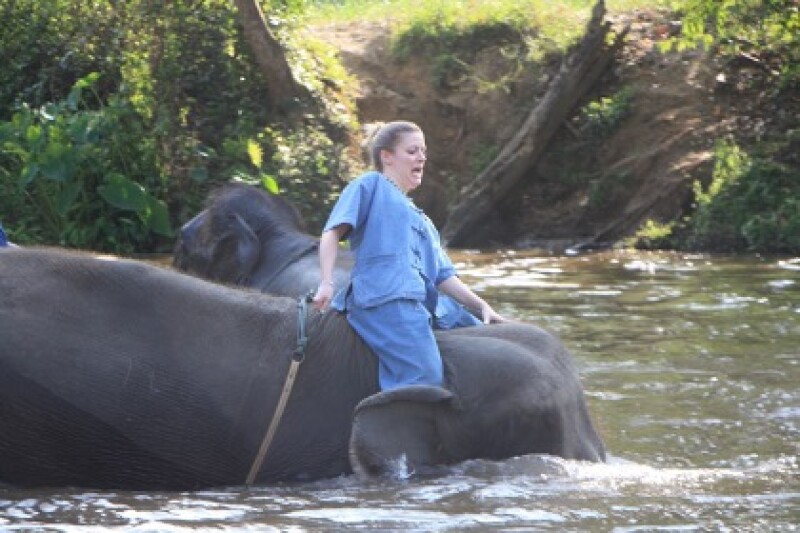
Natalie attempts to stay dry on top of Lady Gaga the elephant.
Courtesy of Natalie Beauregard
“Riding” elephants in Thailand
Natalie Beauregard, Guides editor
A few years ago, my two best friends and I took a trip to Thailand with our husbands for our 30th birthdays. While in Chiang Mai, we booked a visit to an elephant sanctuary, where we were told we’d be able to feed and help bathe the animals. Knowing that many of these places are scams and let you ride the elephants, I tried my best to find the most ethical option, but somehow we found ourselves at an “elephant welfare sanctuary park” being told we needed to change into mahout uniforms before we could get on the elephants. We all reluctantly donned our matching blue outfits—which the staff definitely just made us wear so they could laugh about how silly we looked—and fed the elephants some bamboo, then one by one got hoisted on the backs of our respective rides (mine was named Lady Gaga).
My feeling of unease only increased 10 feet up in the air, trekking down a steep slope on the back of a debatably pissed-off elephant, but I tried to smile as the mahouts took our photos. Were they making fun of us, or genuinely trying to capture the ride? I knew it was the former when we reached the “river” and realized it was more of a muddy stream, with giant balls of elephant poop floating down current.
As they urged the elephants into the water, my stress level reached a fever pitch. I held on to my elephant’s ears for dear life but realized I was slowly slipping off her side, into what my friends and I now refer to as Poop River. I screamed as I splashed into the water. I screamed even louder when I realized I’d dunked. And I full-on burst into tears when I looked ahead and saw two massive poops floating toward me. I looked around at my friends, who were now also in the water, screaming and flailing and desperately trying to dodge the elephants as they sprayed us with their trunks. Then I looked at the mahouts and realized they were all standing on the riverbank, doubled over with laughter as we panicked.
After what seemed like hours, one of them waded in and rounded up the elephants so that we could safely exit the river. But we still had to ride back up to the sanctuary, soaking wet and covered in poop, past the next sorry group waiting for their turn to be humiliated.




